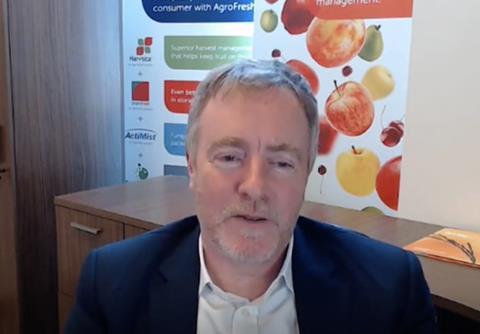Growers and packers all over the world have since come to rely on the game-changing technology
This year marks the 20th anniversary of the launch of AgroFresh’s flagship ripening management solution SmartFresh, the original 1-MCP technology that puts the ripening process of fruit “on hold” to delay softening and over-ripening.

Since then, the company has developed a number of scientific and commercial applications of SmartFresh to keep produce fresher, longer. “Over the last 20 years, growers and packers have come to rely on the game-changing technology of SmartFresh to deliver the freshest produce to consumers around the world by maintaining optimal quality and freshness and preventing the challenges that impact the shelf-life of fruit,” the company said.
“For operations of all sizes, from all fruit-growing regions of the world, SmartFresh optimises grower resources while offering more resiliency and sustainability, resulting in better return on investment for growers, packers and retailers.
“Today, thanks to numerous years of close cooperation with international researchers, universities and customers – as well as an investment in seven global innovation centres and strategic partnerships – AgroFresh has extensive knowledge of fresh produce quality management. Our innovative team continues to expand the possibilities by offering new product formats of the SmartFresh Quality System to fit multiple crops in the field, storage rooms and in transit.”
Chief technology officer Duncan Aust oversees research and development, regulatory and external innovation at AgroFresh. He puts the impact of SmartFresh down to the company’s maintains with growers and packers to better understand their needs and challenges.
“We enjoy working very closely with the scientists that we have on our team, the scientists within some of the larger grower-packer operations and the individual farmer in the orchard,” he says.
The 1-Methylcyclopropene (1-MCP) growth regulator behind the SmartFresh solutions was discovered nearly 30 years ago, in 1994, at North Carolina State University by biochemist Edward Sisler and horticulturalist Sylvia Blankenship ushering in new possibilities for the fresh produce and floral industries.
When asked about bringing the technology to market and the long-term vision of 1-MCP, Blankenship had several insights and stories to share from her perspective as a horticulturist who could only dream of the impact her discovery has made.
“Never in a million years did I think that things would end up the way that they are,” said Blankenship. “My goal from the time I took my job was to help the produce industry. My goal was to come up with a better-quality product that would save time and save money.”
Both Aust and Blankenship care about sustaining an industry they share a passion for. And the benefits of the technology throughout the global supply chain have continued to scale from Sisler and Blankenship’s lab bench to Aust’s pipeline of innovative solutions that work to solve the global issue of food loss and waste.



